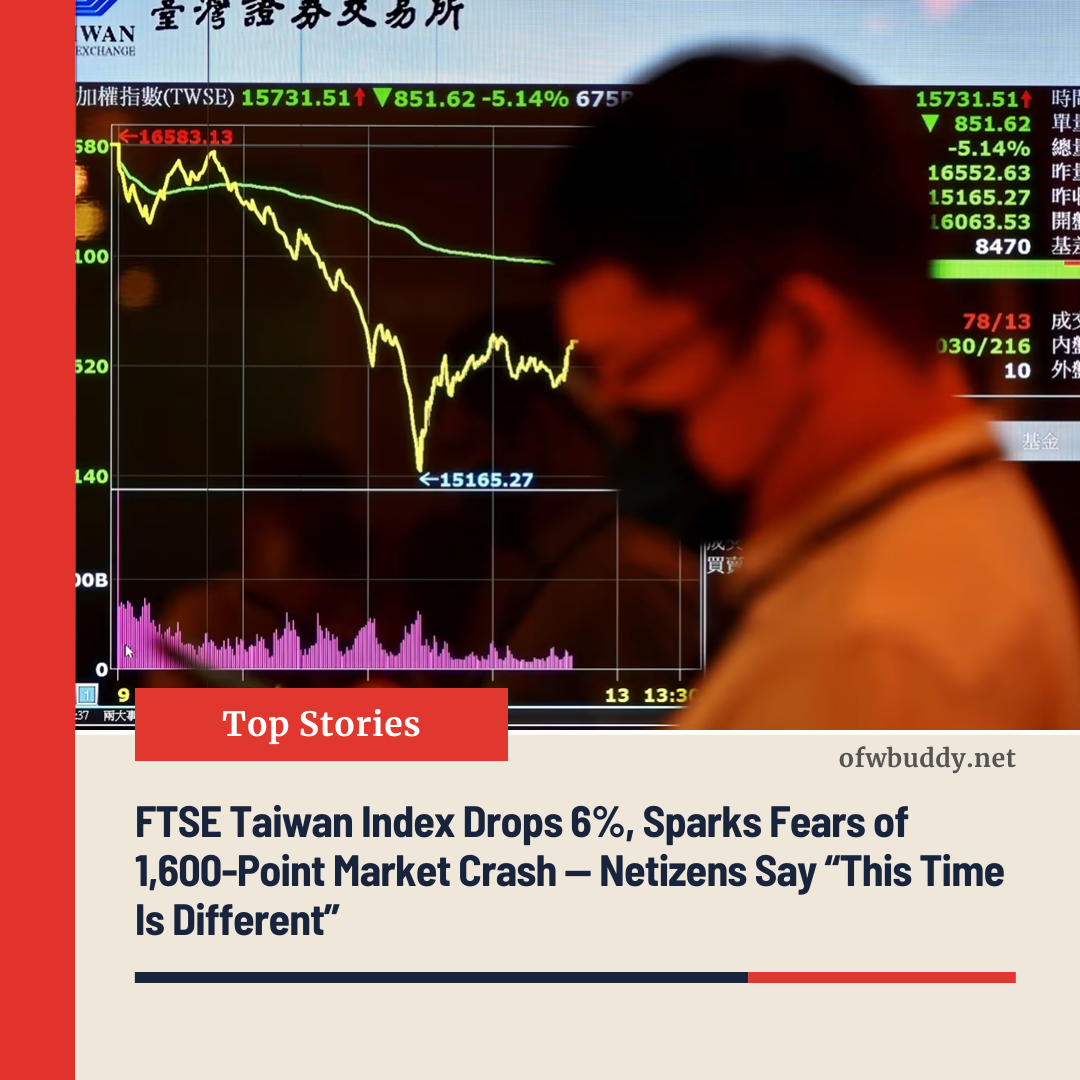October 13, 2025
Following former U.S. President Donald Trump’s announcement of a 100% tariff increase on Chinese imports, global markets reacted sharply. All four major U.S. stock indices tumbled, with TSMC’s American Depositary Receipts (ADR) plunging by 6.41%, while Singapore’s FTSE Taiwan Index futures dropped nearly 6%. Analysts now warn that the Taiwan Stock Exchange could open with a massive 1,600-point decline on Monday.
The drastic market movement has triggered widespread investor anxiety, though some online observers have downplayed the panic, suggesting the situation mirrors past downturns that later rebounded.
Reports indicated that the Fitch and Nasdaq indices fell 6.32% and 3.56%, respectively. Based on the performance of Taiwan futures, financial analysts predict that local markets could see a sharp correction when trading resumes. The financial blog “Investment Addiction” speculated that sentiment may shift quickly, with the market likely to open 1,000 points lower, possibly nearing the 1,500-point mark.
Despite the fear-driven reactions, experts reminded investors that the National Security Fund still held a NT$3.7 billion profit as of September and has pledged continued market support, helping stabilize confidence.
Online, public sentiment remains divided. Some netizens view the sell-off as an overreaction, citing past recoveries:
“We’ve seen this before — it always bounces back,” one commenter wrote.
Others believe this time may be different, emphasizing the impact of rare earth restrictions on the AI hardware industry and the growing seriousness of U.S.-China economic tensions.
While bearish investors predict further losses, optimistic traders see the panic as an opportunity to buy low, maintaining that market volatility often precedes recovery.

